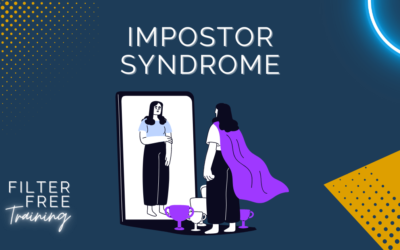Perimenopause, the transitional phase leading up to menopause, is a time of significant hormonal fluctuation in a woman’s life. During this period, typically starting in a woman’s 40s but sometimes earlier, hormonal changes can have a profound impact on both physical and emotional well-being. In this blog, we’ll explore how perimenopause hormones affect us and share strategies for navigating this transformative stage with grace and resilience.
Understanding Perimenopause Hormones
Perimenopause is characterized by a decline in estrogen and progesterone levels, the hormones that regulate the menstrual cycle and support reproductive function. As these hormone levels fluctuate, women may experience a wide range of symptoms that vary in intensity and duration. Common symptoms of perimenopause hormone fluctuations include:
- Irregular periods: Changes in the menstrual cycle, including shorter or longer cycles, heavier or lighter bleeding, and skipped periods.
- Hot flashes and night sweats: Sudden, intense feelings of heat accompanied by sweating, often occurring during sleep or throughout the day.
- Mood swings: Emotional ups and downs, including irritability, anxiety, depression, and mood swings, due to hormonal fluctuations.
- Sleep disturbances: Difficulty falling asleep, staying asleep, or experiencing restful sleep due to night sweats, hot flashes, or hormonal changes.
- Vaginal dryness: Decreased lubrication and elasticity in the vaginal tissues, leading to discomfort or pain during intercourse.
- Changes in libido: Fluctuations in sex drive and arousal levels due to hormonal changes and other perimenopausal symptoms.
- Physical symptoms: Other physical symptoms such as fatigue, weight gain, bloating, joint pain, and headaches may also occur during perimenopause.
Navigating Perimenopause Hormonal Changes
While perimenopause hormones can bring about significant changes, there are strategies you can employ to manage symptoms and support your overall well-being during this transition:
- Prioritize self-care: Self-care practices such as regular exercise, healthy eating, adequate sleep, and stress management can help alleviate perimenopausal symptoms and support hormonal balance.
- Seek medical guidance: Consult with a healthcare provider to discuss perimenopausal symptoms and explore treatment options such as hormone replacement therapy (HRT), natural remedies, or lifestyle changes.
- Practice mindfulness: Mindfulness techniques such as meditation, deep breathing, and yoga can help reduce stress, anxiety, and mood swings associated with perimenopause.
- Stay connected: Connect with friends, family, or support groups to share experiences, seek advice, and receive emotional support during this transitional phase.
- Educate yourself: Educate yourself about perimenopause and its associated symptoms to better understand what you’re experiencing and how to manage them effectively.
- Embrace self-compassion: Be gentle with yourself and acknowledge that perimenopause is a natural and normal stage of life. Practice self-compassion and self-acceptance as you navigate the ups and downs of hormonal changes.
Conclusion
Perimenopause hormones can have a profound impact on both physical and emotional well-being, but they don’t have to derail your life. By understanding the symptoms of perimenopause, seeking support from healthcare providers and loved ones, and prioritizing self-care practices, women can navigate this transitional phase with grace and resilience. Remember, perimenopause is a natural and normal stage of life, and with the right strategies and support, you can embrace this new chapter with confidence and vitality.



